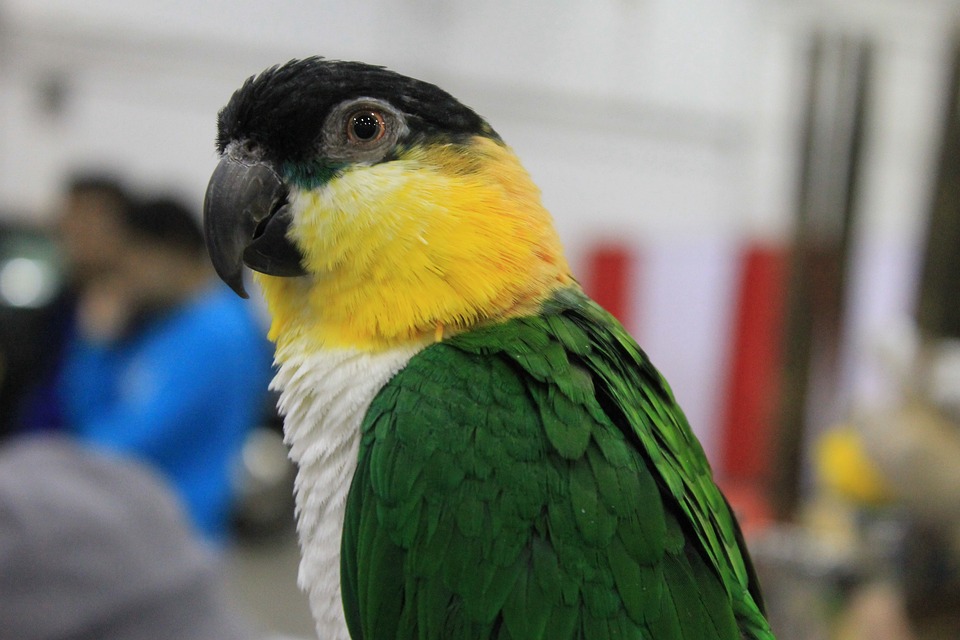Parrots are beautiful and intelligent creatures that bring joy and companionship to many households. However, a common issue that parrot owners face is excessive nighttime calling or vocalizations. These noisy disruptions can not only disturb your sleep but also that of your neighbors. In this article, we will explore effective techniques to discourage excessive nighttime calling in parrots, promoting a peaceful and restful environment for both you and your feathered friend.
Understanding the Causes of Nighttime Calling:
Parrots are highly social creatures with natural behaviors that include vocalizing. However, several factors can contribute to excessive nighttime calling, including:
1. Lack of mental stimulation: Parrots are intelligent animals that require mental stimulation throughout the day. Without adequate mental enrichment, they may resort to vocalizations as a means of self-entertainment. It is important to provide your parrot with various mentally stimulating activities such as puzzle toys and foraging opportunities. Additionally, rotating their toys regularly can help keep them entertained and prevent boredom.
2. Loneliness or boredom: Parrots are flock animals and thrive on social interactions. If they feel isolated or bored during nighttime hours, they may vocalize in an attempt to seek attention or companionship. It is crucial to ensure that your parrot receives ample social interaction and companionship during the day. Engage in interactive play sessions, allow them to fly and explore, and provide them with opportunities to interact with you and other household members.
3. Environmental triggers: Certain environmental factors, such as changes in lighting, sounds, or unfamiliar disturbances, may trigger excessive vocalizations in parrots. Identifying and minimizing these triggers can help reduce nighttime calling. Creating a calm sleep environment for your parrot by designating a quiet and dimly lit sleeping area can be beneficial. Additionally, covering their cage partially or fully can help minimize external stimuli that may trigger vocalizations.
Techniques to Discourage Excessive Nighttime Calling:
1. Provide Sufficient Mental Stimulation: Engage your parrot in various mentally stimulating activities throughout the day to prevent boredom. Offer puzzle toys, foraging opportunities, and rotate their toys regularly to keep them entertained.
2. Establish a Consistent Routine: Establishing a consistent daily routine can help regulate your parrot’s behavior, including vocalizations. Maintain regular sleep and wake-up times, ensuring they receive enough restful hours each night.
3. Create a Calm Sleep Environment: Designate a quiet and dimly lit sleeping area for your parrot. Cover their cage partially or fully to minimize external stimuli that may trigger nighttime vocalizations.
4. Promote Physical and Social Activity: Ensure your parrot receives ample physical exercise and social interaction during the day. Encourage flight, provide room to climb and explore, and engage in interactive play sessions to tire them out before bedtime.
5. Avoid Reinforcement: Refrain from rewarding or reinforcing your parrot’s nighttime vocalizations. Avoid interacting or providing attention during these instances, as it may inadvertently encourage the behavior.
6. Use White Noise or Soothing Sounds: Playing gentle background noises, such as nature sounds or soft music, can help drown out external sounds that may trigger vocalizations. Gradually reduce the volume over time to wean your parrot off this dependency.
7. Consult an Avian Behaviorist: If the excessive nighttime calling persists despite your efforts, consider seeking guidance from an avian behaviorist. They can provide tailored advice and strategies to address your parrot’s specific needs.
FAQs (Frequently Asked Questions):
1. Q: Is it normal for parrots to vocalize at night?
A: While some vocalization during nighttime hours is normal, excessive or prolonged vocalizations can indicate underlying issues that require attention.
2. Q: Can I cover my parrot’s cage at night to reduce vocalizations?
A: Yes, covering your parrot’s cage partially or fully can create a darker and quieter environment, reducing potential triggers for nighttime vocalizations.
3. Q: Will ignoring my parrot’s nighttime vocalizations make them stop?
A: Ignoring vocalizations can discourage attention-seeking behavior in parrots. However, it is essential to address the root causes of excessive vocalizations through mental stimulation, social interaction, and a consistent routine.
4. Q: Can parrot toys help reduce nighttime vocalizations?
A: Yes, providing a variety of toys that offer mental stimulation and foraging opportunities can help distract and entertain your parrot during nighttime hours, potentially reducing vocalizations.
5. Q: When should I consult an avian behaviorist for excessive nighttime vocalizations?
A: If your parrot’s nighttime vocalizations persist despite implementing various strategies and techniques, consulting an avian behaviorist is recommended. They can provide specialized guidance based on your parrot’s unique needs.
Remember, patience and consistency are key when addressing excessive nighttime calling in parrots. By understanding their natural behaviors and implementing appropriate strategies, you can create a harmonious environment that promotes restful nights for both you and your beloved parrot.









